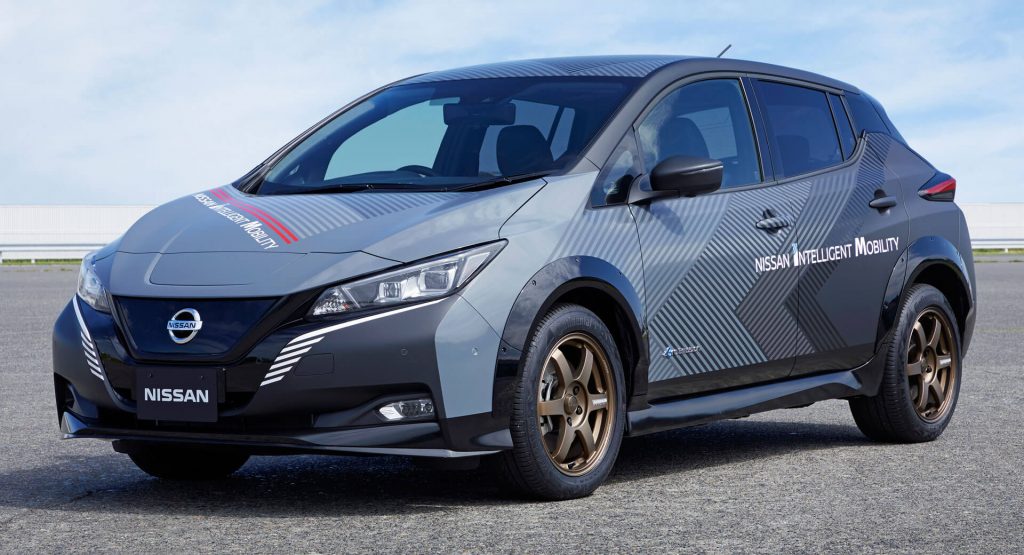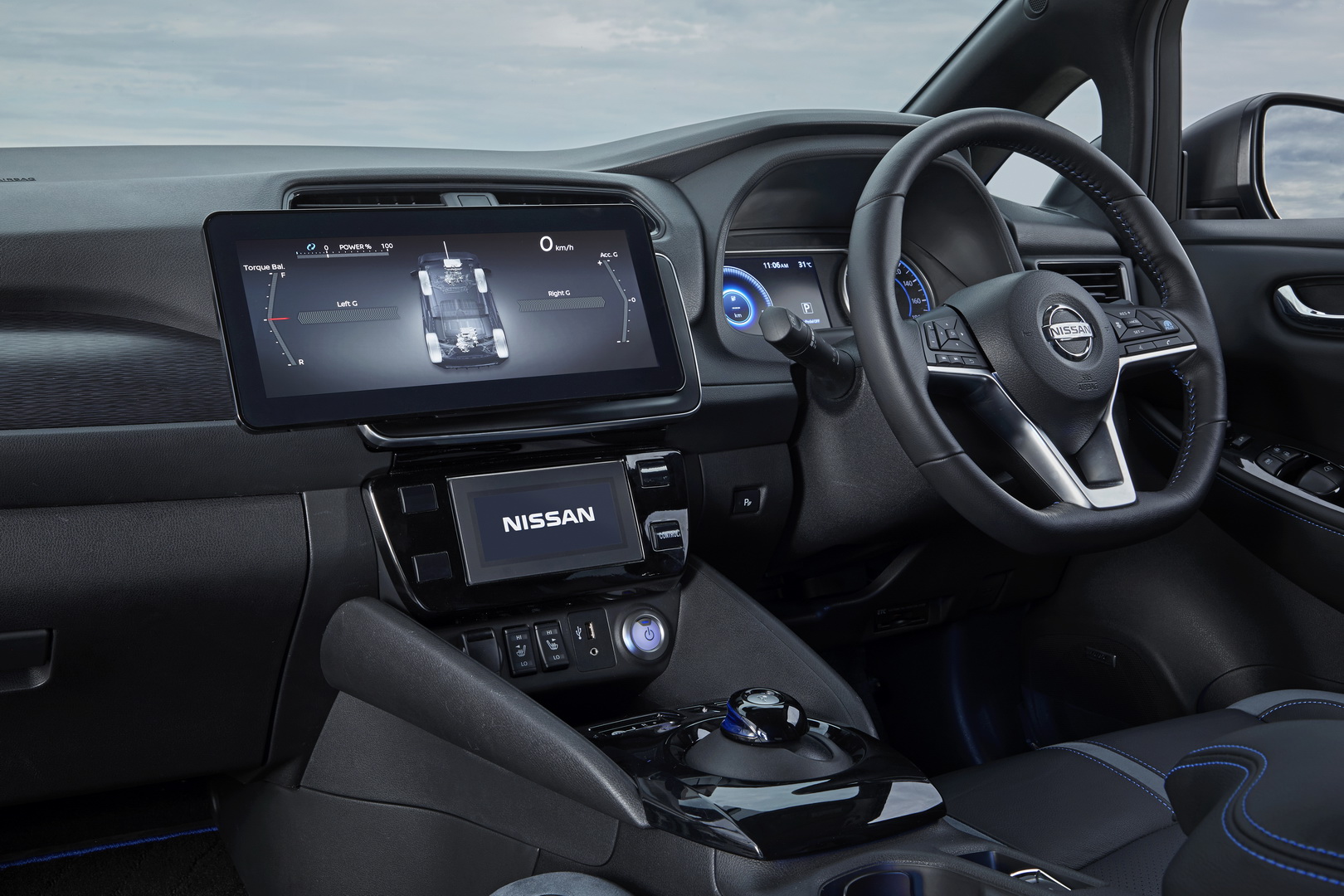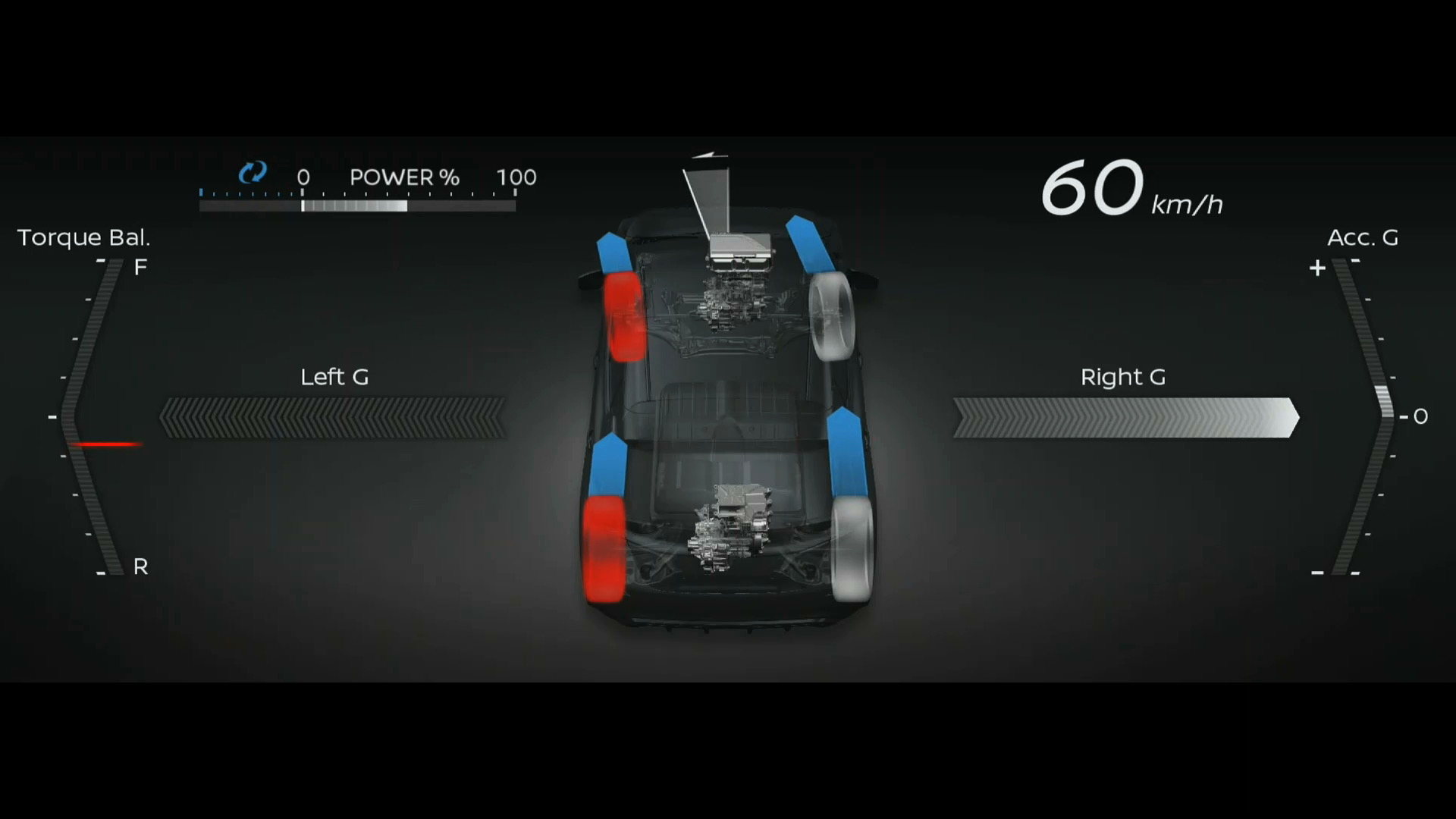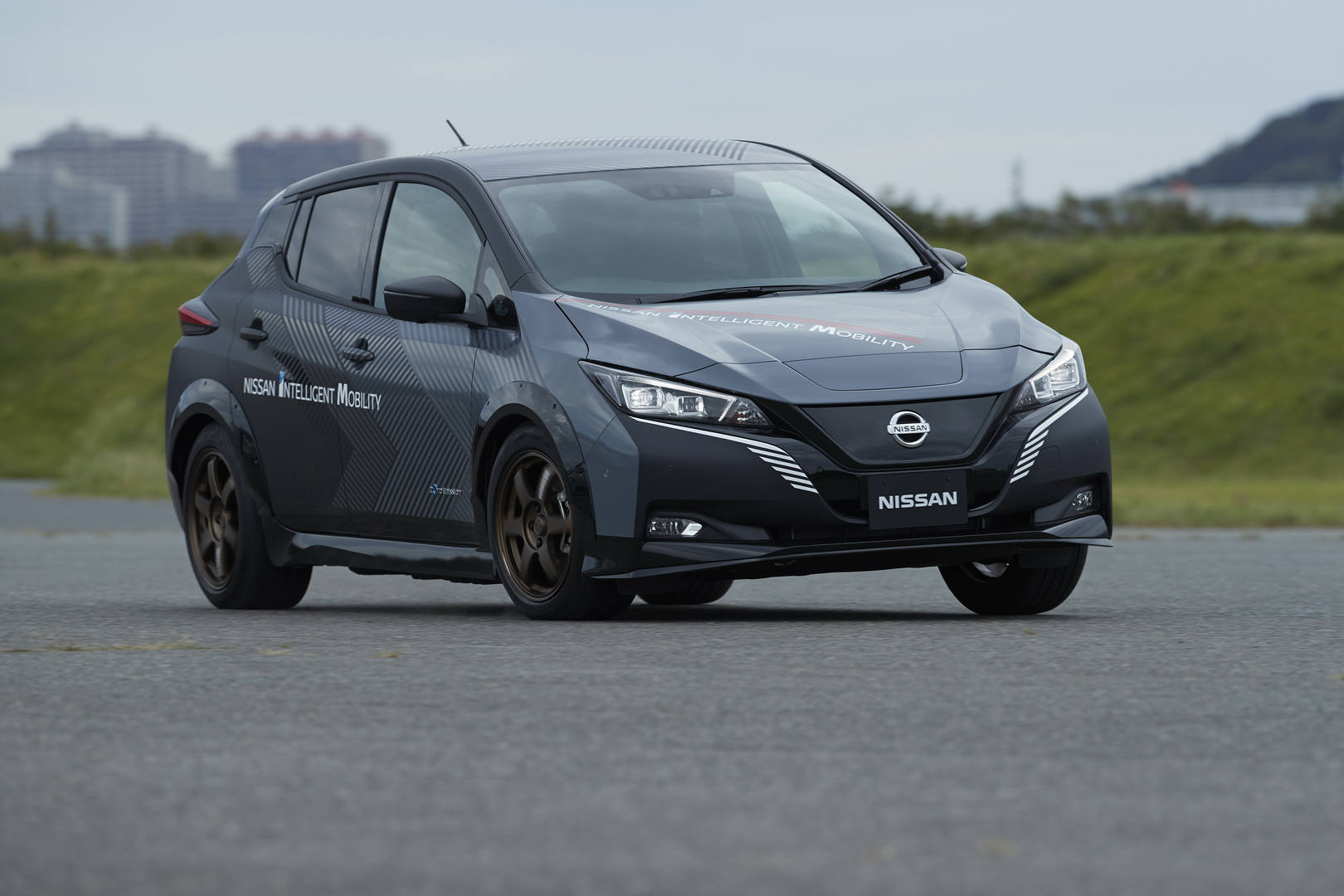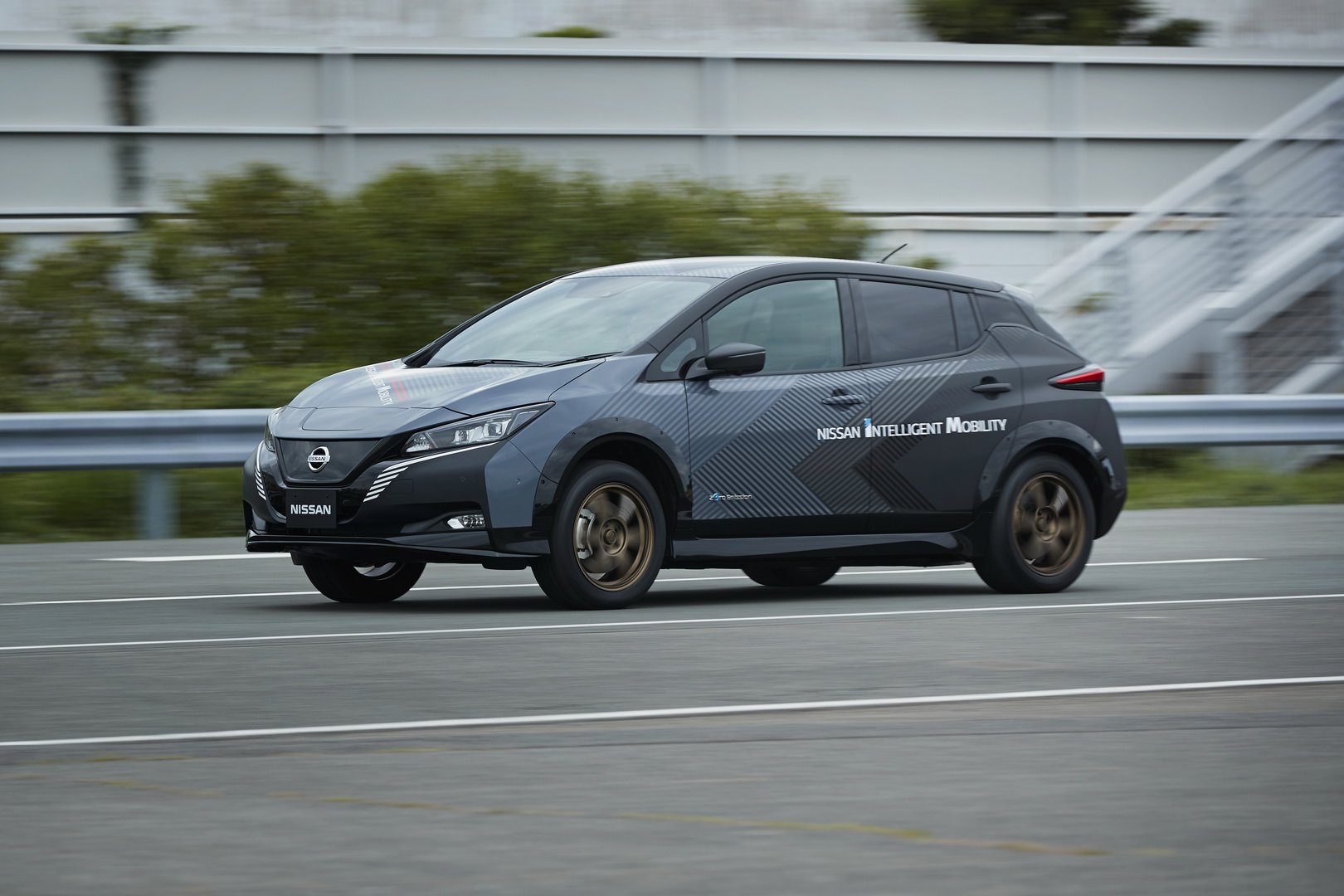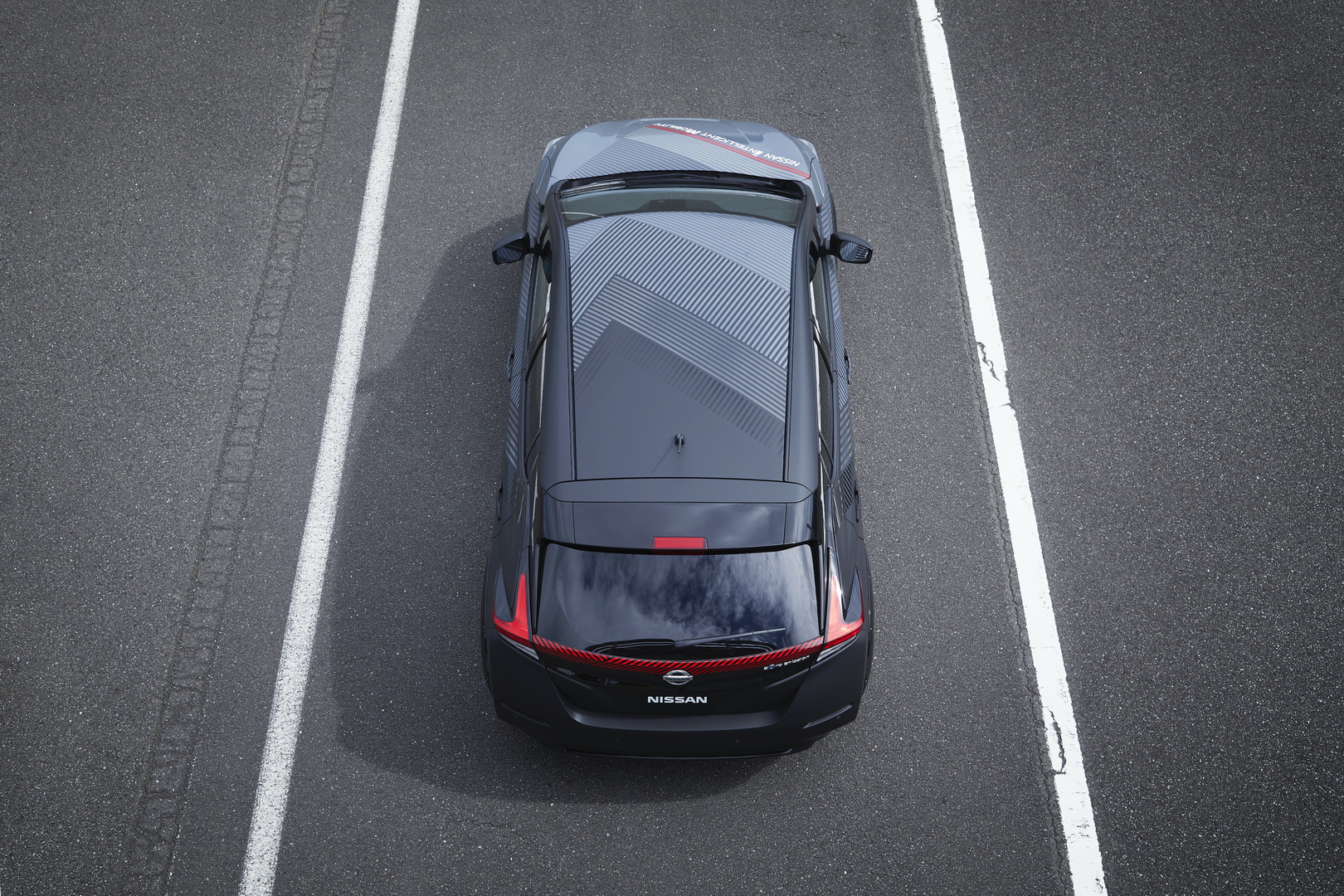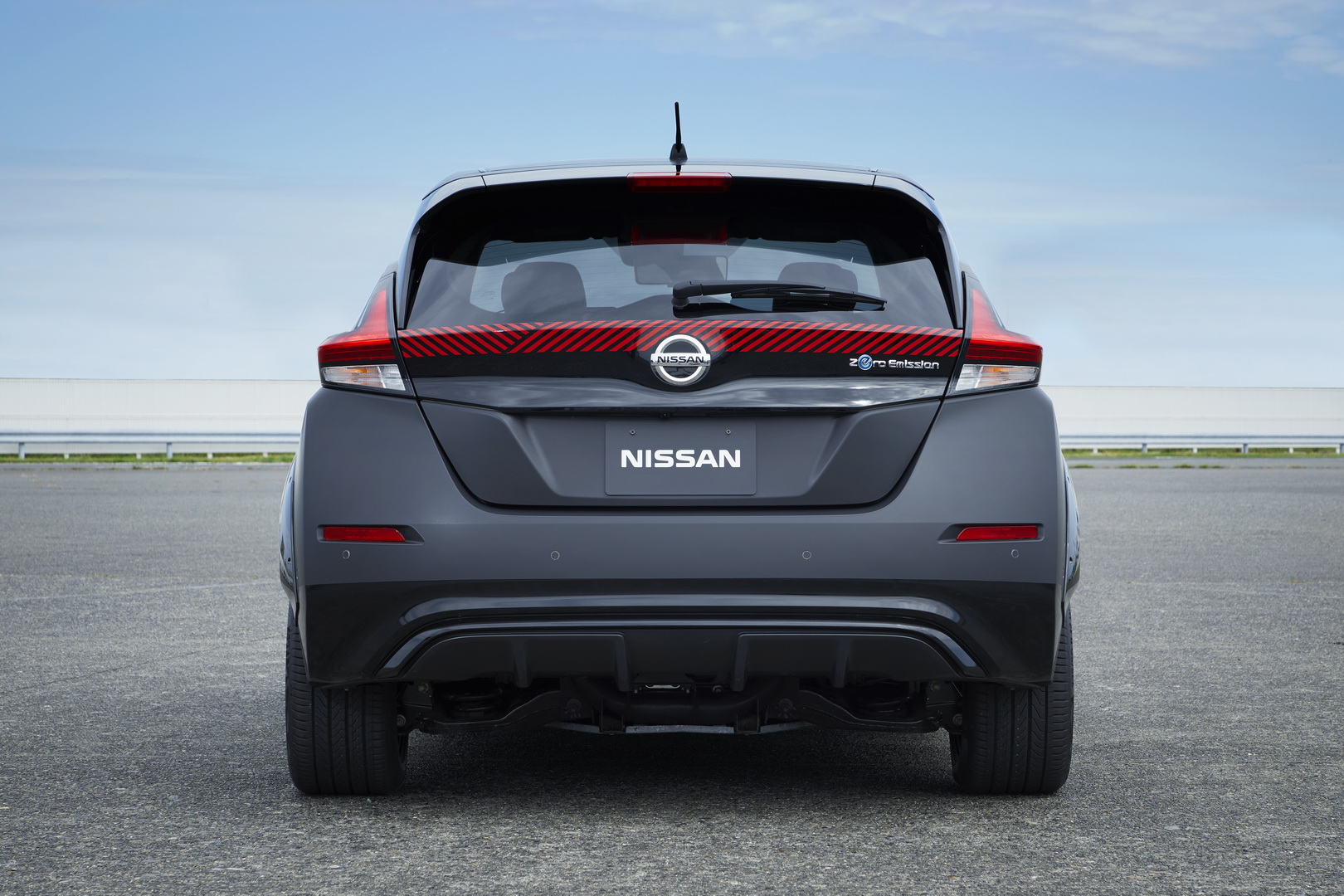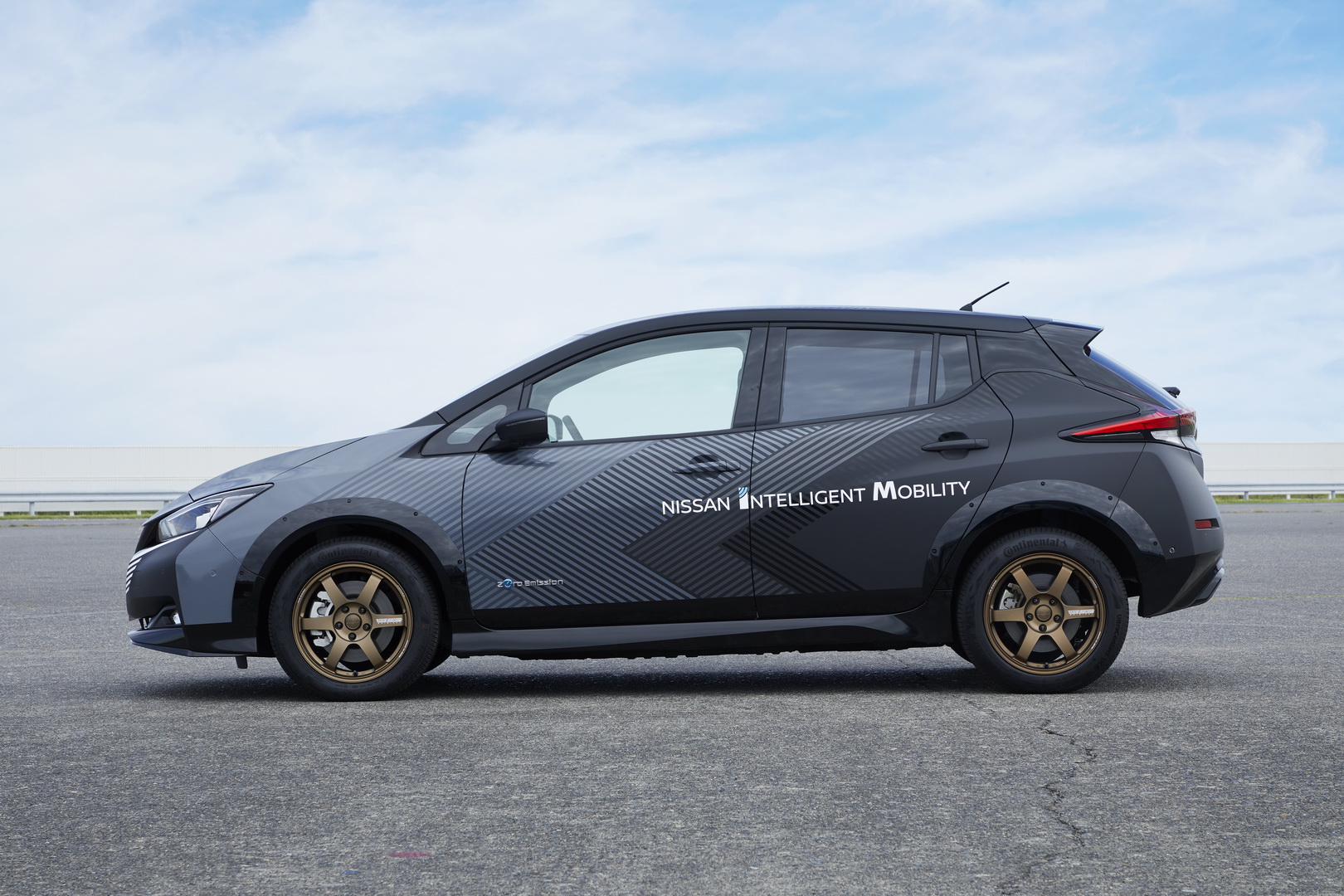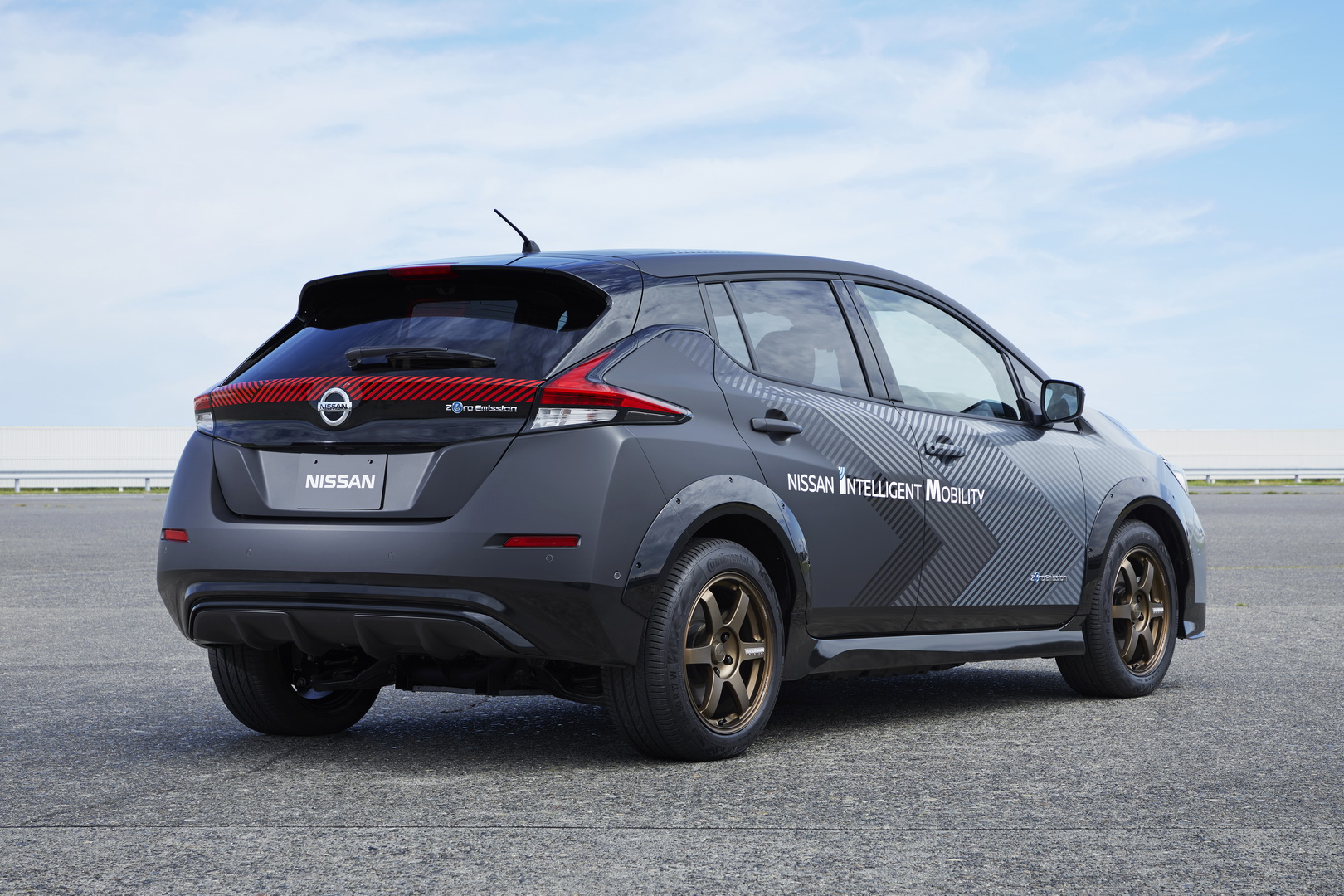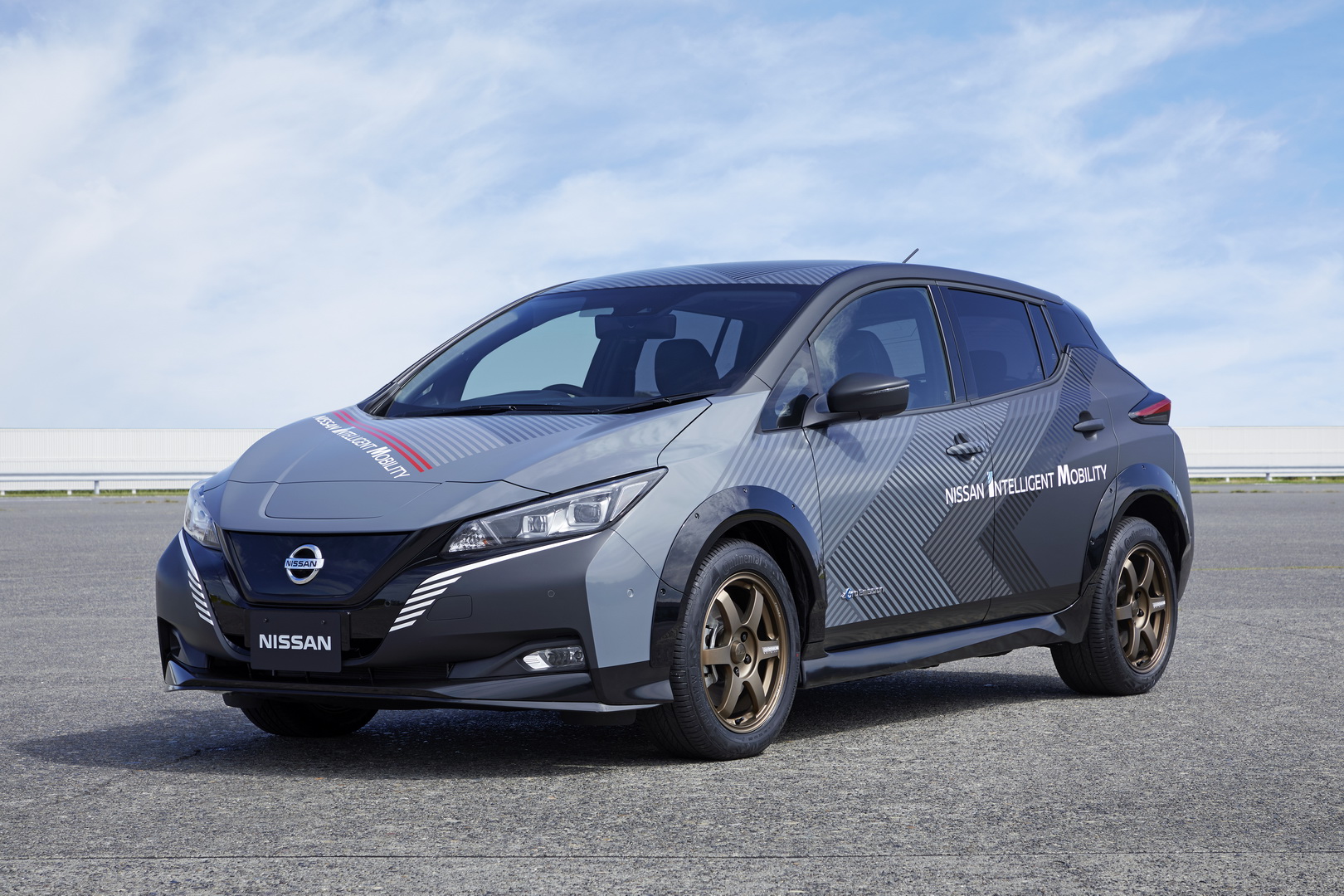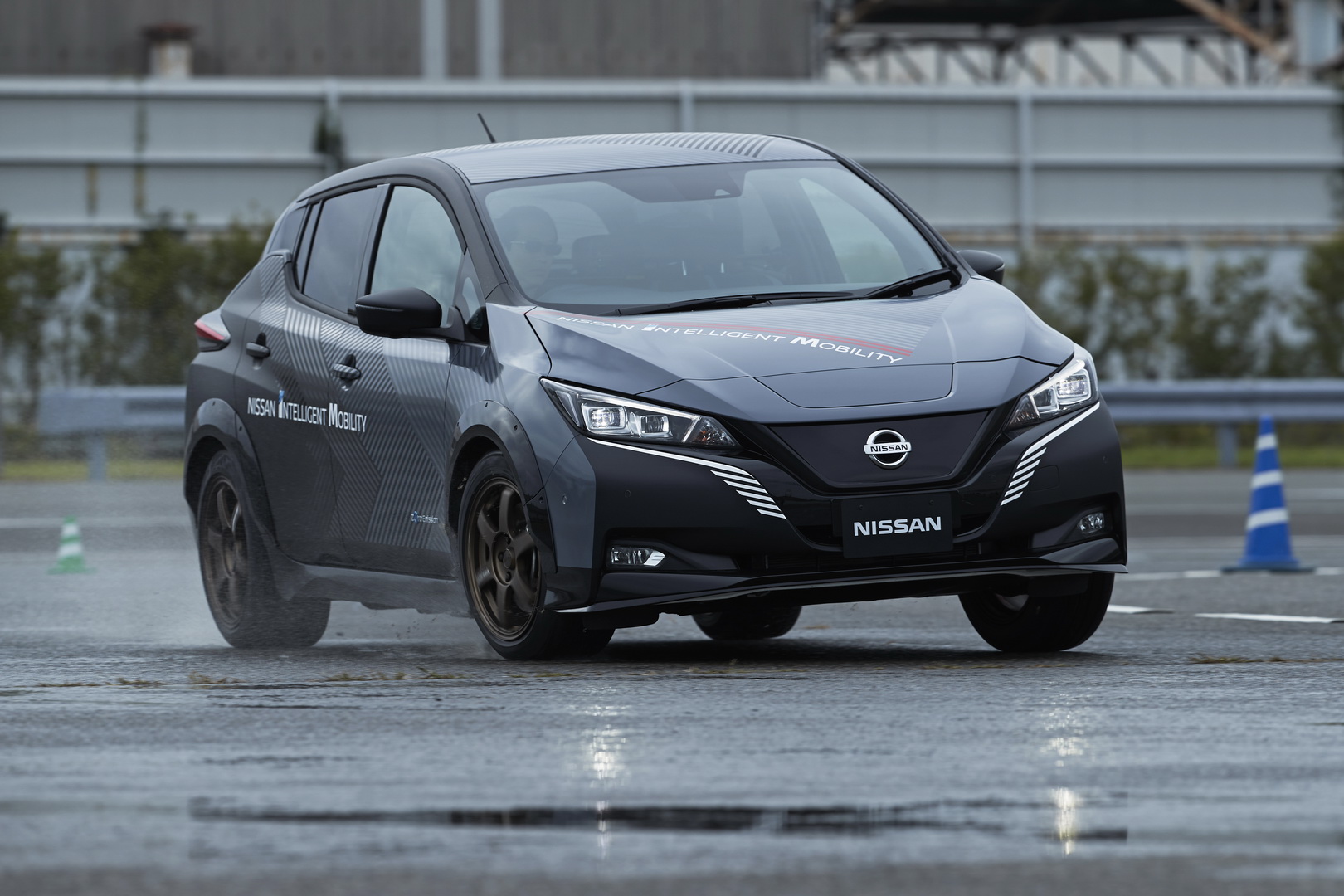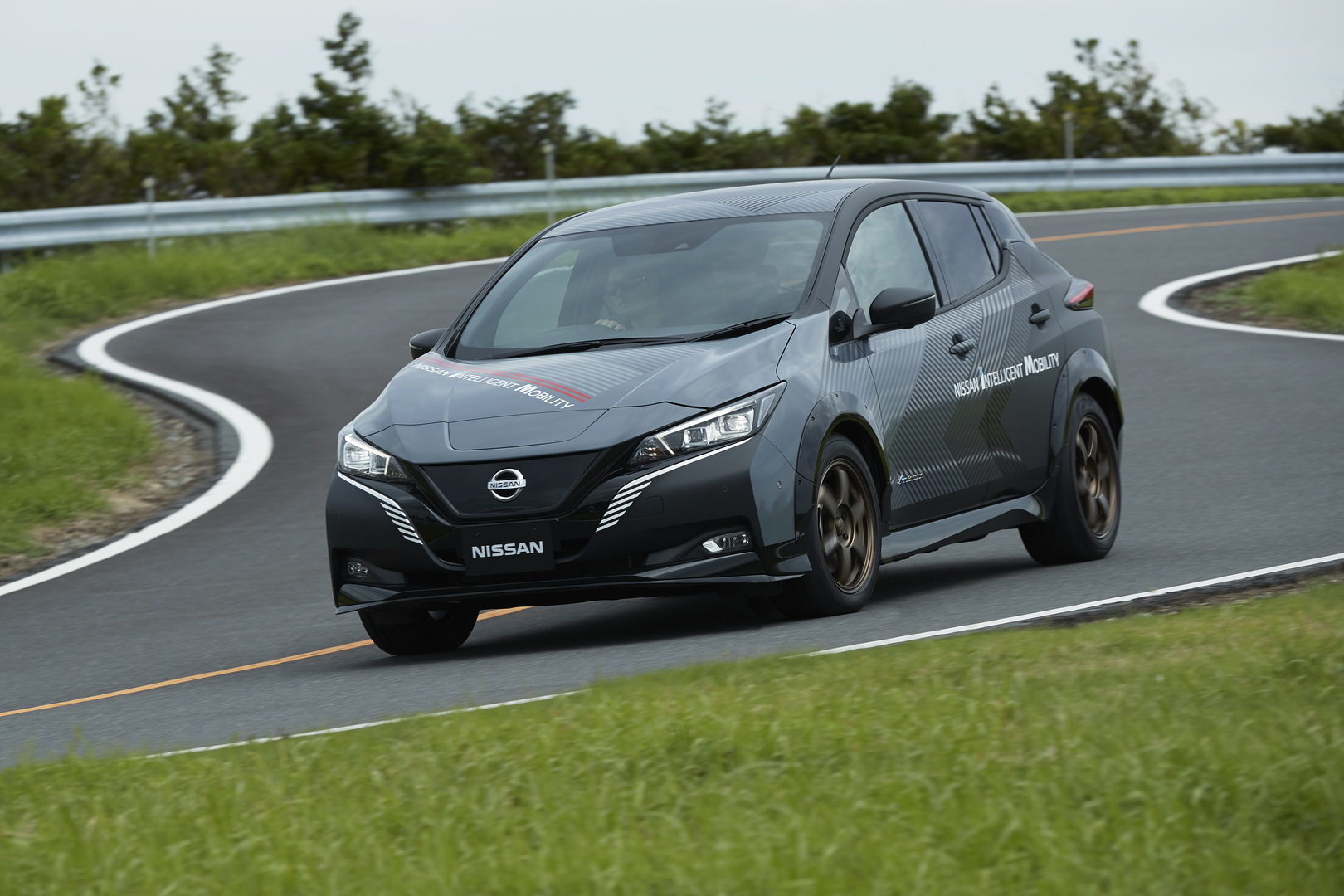Nissan has created a test car based on the outgoing Leaf e+ equipped with new technologies that will be used in the company’s next generation electric vehicles.
Powering it are two motors, one on each axle, which generate a combined 304 HP (227 kW / 309 PS) and 680 Nm (502 lb-ft) of torque.
This layout creates an electric all-wheel drive system that’s complemented by other technologies, such as regenerative braking that minimizes pitch and dive and a system that applies independent brake control at each wheel that lets drivers enjoy high-speed cornering with minimal steering.
Also Watch: New Nissan Leaf E+ Reduces Range Anxiety, But Demands A Compromise
“Soon, Nissan will launch a next-generation EV that will be a true breakthrough”, said senior VP for Research and Advanced Engineering, Takao Asami. “The new electric-drive four-wheel-control technology now being developed integrates Nissan’s electric propulsion and 4WD control technologies with our chassis control technology to achieve a huge leap in acceleration, cornering and braking performance, on par with the latest sports cars.”
At 4,480 mm (176.4 in) long, 1,830 mm (72 in) wide and 1,540 mm (60.6 in) tall, the Leaf test car is 10 mm (0.4 in) shorter, 42 mm (1.7 in) wider and 10 mm (0.4 in) taller than the regular Leaf, while it retains the same 2,700 mm (106.3 in) wheelbase. It also features wheel arch extensions and 17-inch rally style wheels shod in 215/55 front and 235/50 rear tires.
Inside, Nissan’s engineers have fitted it with a large 12.3-inch display infotainment system capable of reporting on the control technology using the polished graphic interface in real time, thus helping drivers better understand it.







